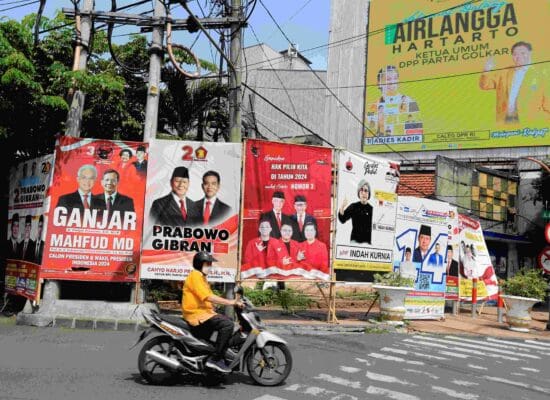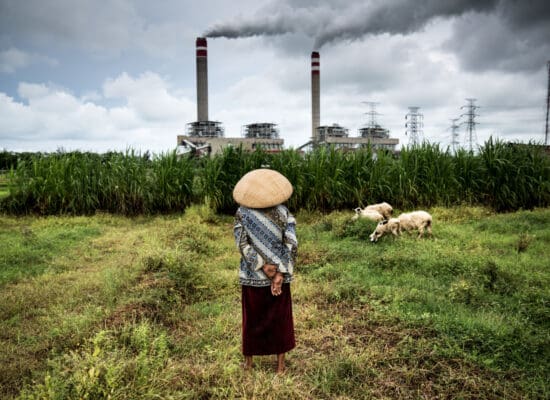Story
A Just Transition in the Making: The story behind East Kalimantan’s new Regional Consultation Forum
In coal-reliant East Kalimantan, a new advisory forum has been set up to support just transition processes and economic transformation in the province. We followed several people who were involved in establishing the new forum to find out how they feel about it.
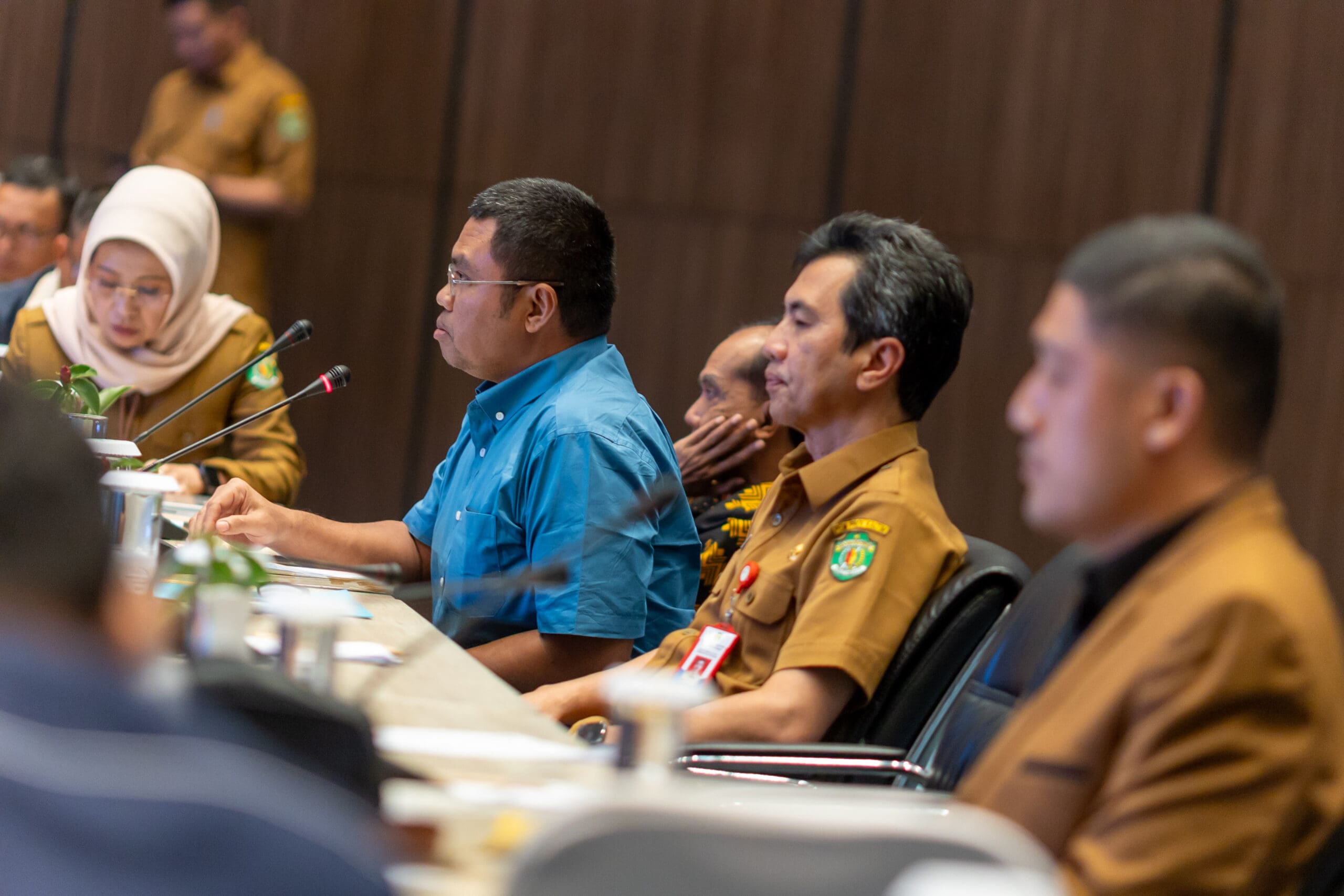
The Beginning: A new approach to just energy transition
With climate change making increasing impacts across the globe, the transition away from fossil fuels is now a priority for many countries. In Indonesia, signing the Just Energy Transition Partnership in 2022 was a key step towards translating the concept of a just energy transition into more concrete programmes that prioritise an inclusive and equitable shift away from fossil fuels.
A new multistakeholder forum in East Kalimantan is aiming to support these processes by recommending just transition measures to policy-makers in the coal-rich province. With support from the International Labour Organization (ILO), the main facilitator of the process, this forum was established around a tripartite blueprint to include local government, trade unions, and companies. It also involves other groups, such as the media, academia, and civil society organisations (CSOs) that represent groups like women and Indigenous communities.
Agus Taswanto, 47, has been a government official on the East Kalimantan Development Planning Board (Bappeda) for almost two decades. He was involved in the new multistakeholder forum from the start. Currently a planner in the environmental sector, where he is responsible for preparing forestry and energy strategies for the province, Agus was chosen to participate in just energy transition training facilitated by the ILO in 2023 as part of the Innovation Regions for Just Energy Transition (IKI JET) project.
Agus, who engages with various external stakeholders in the natural resources and environment field, first heard about just energy transition from non-governmental organisations. He acknowledges that his initial understanding of the concept was limited because he had never heard a comprehensive explanation, but the training he received through the IKI JET project provided him with a clearer picture. The training “opened my eyes to the potential risks,” said Agus, adding that a just energy transition is an adaptation that requires targeted effort, including social protection for workers and economic diversification for impacted communities. “If not the local government, who else will realise a just transition for vulnerable groups that might otherwise be left behind?”
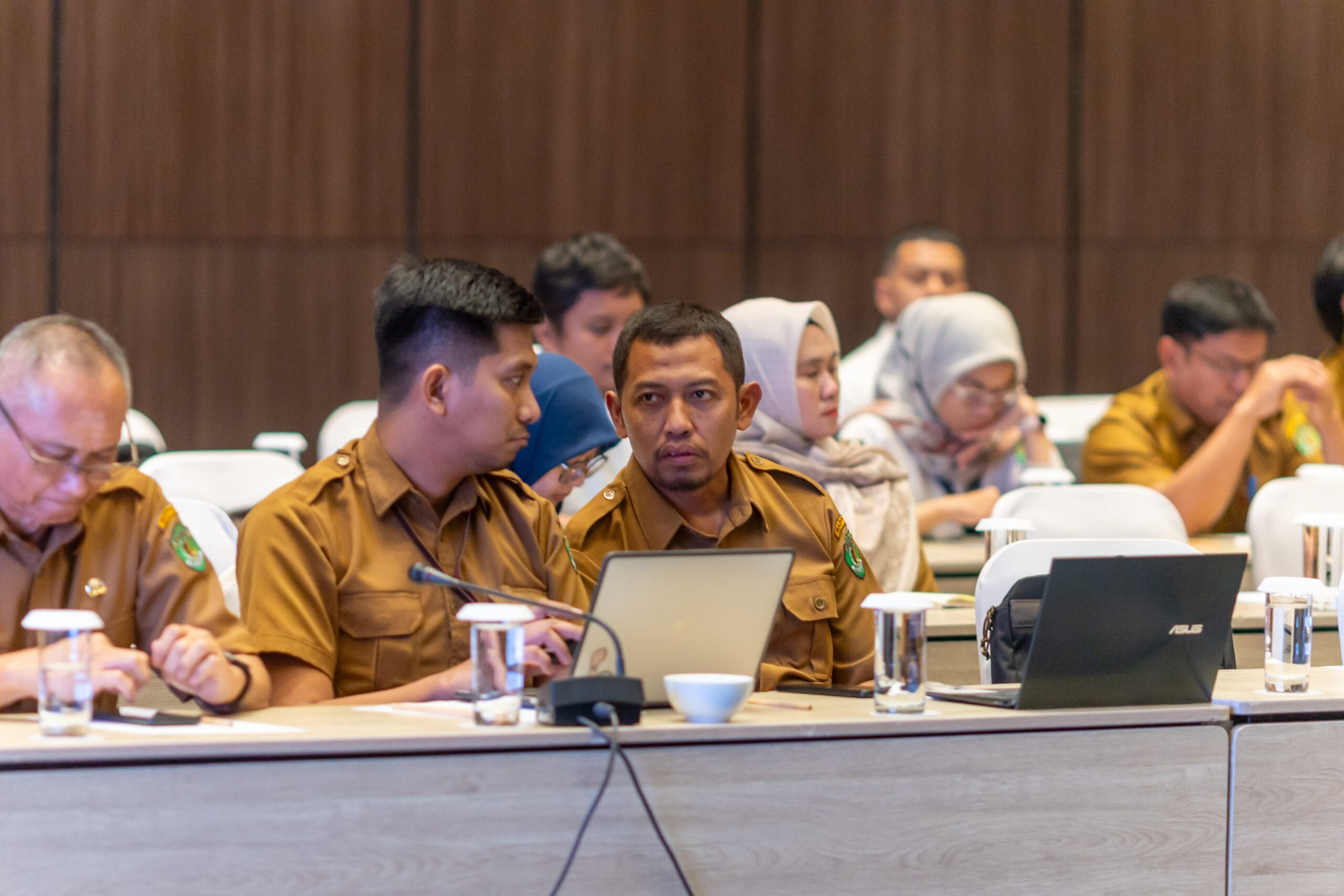
After the initial meeting in August 2023, Agus, alongside other members, was invited to monthly training sessions on the principles of just transition. This led to him attending additional online meetings to discuss establishing the forum. It was the urgency of the need to transition to clean energy that kept Agus motivated despite such an intensive schedule. In addition, as a consequence of Bappeda’s decision to include energy transition in the regional development plans, this topic became more relevant to Agus’ work. Nevertheless, he admitted feeling overworked at times due to juggling the additional commitments of the forum and the responsibilities of his regular work.
Optimism and an Ambitious Vision
East Kalimantan supplies most of Indonesia’s coal exports, so it relies heavily on coal production for its economic growth. But given that global demand for coal is predicted to peak in 2026, experts are urging the region to develop economic strategies to mitigate the negative impacts of energy transition. It was therefore no surprise that East Kalimantan, along with South Sumatra, was selected for piloting stakeholder consultation forums as part of the IKI JET project in Indonesia.
Muhammad Arifin is a technician at coal-mining and power company Indominco Mandiri and a member of the company’s trade union, Indonesian Workers Welfare Union (KSBSI). He is particularly concerned about how the energy transition will affect coal workers and hopes to learn more about solutions that can help prevent adverse impacts, including through strengthening social safety nets and upskilling programmes. He’s pleased to be part of the forum because he believes it allows him to contribute to something meaningful.
He further echoes Agus’ positive impression of the training and the formation process. Despite being “one of the most intense” training programmes he has ever taken part in, requiring a two-hour drive in order to participate, Muhammad considers the training provided by the IKI JET project to be instrumental in providing clarity around the topic of transitioning away from coal.
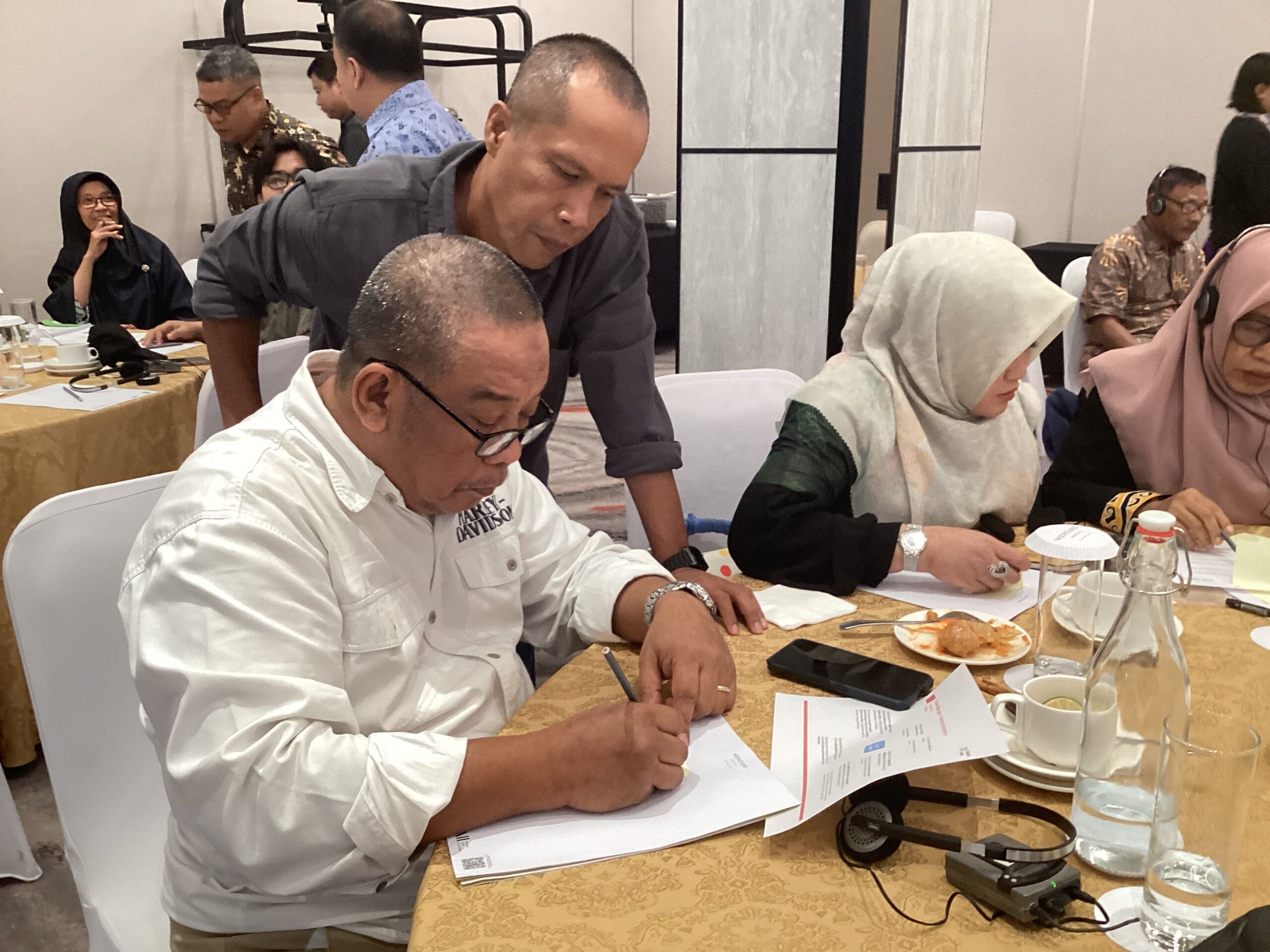
More broadly, many of the participants expressed their confidence that the forum can bring practical solutions to support an ambitious vision for a just transition in East Kalimantan’s coal communities. At one point, participants even discussed expanding the role of the forum beyond its consultative remit for policy-makers.
Dewi Wulan Sari, a participant representing the employer association APINDO (Asosiasi Pengusaha Indonesia) Samarinda City, suggested in March 2024 that the forum could help bridge important knowledge gaps within the community. In particular, she suggested that the forum could organise community-level programmes to raise awareness of just energy transition and facilitate entrepreneurship training to help locals diversify their economy. Dewi pointed to home-based food enterprises, which are often founded and operated by women. Increasing their capacity and giving them access to capital could help them to expand their businesses.
“Women have the potential to grow their businesses even more, and we can use this opportunity of just energy transition to empower them,” Dewi said. She also suggested that awareness-raising and training can help the forum generate the funds to cover its operational costs independently, which would ease the burden on the regional budget.
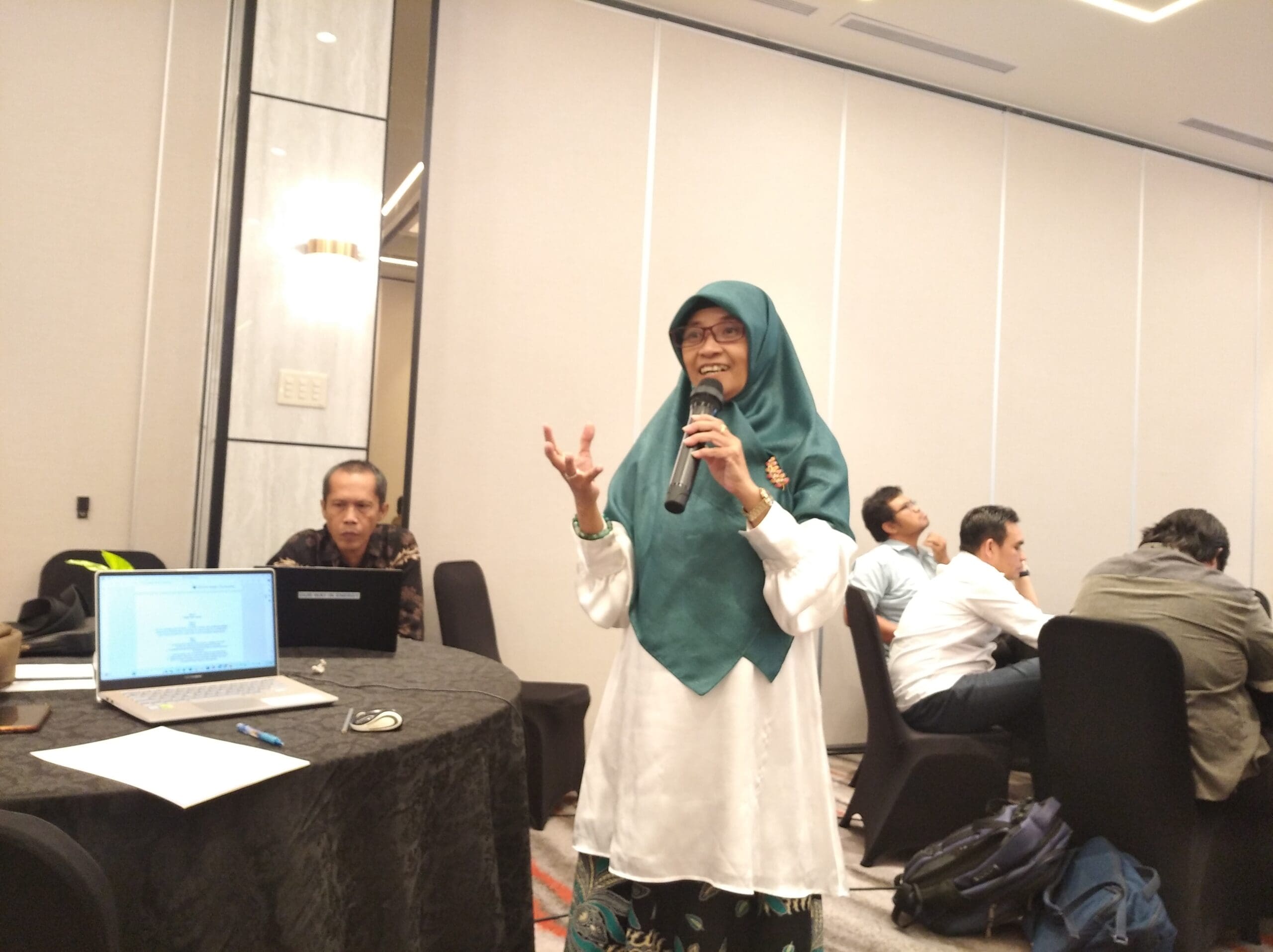
Synergy and Representation
Another aspect of the forum that has been consistently praised by participants is its synergy, which gives voice to groups that are marginalised in the transition, including Indigenous communities.
“At first, we thought that energy transition would have the same effects as standard development projects always have on Indigenous groups,” said Saiduani Nyuk, who heads the Indigenous Peoples’ Alliance of Nusantara (AMAN) East Kalimantan. With regional renewable projects in the pipeline, he feared that new green businesses could take away the land of Indigenous communities. “But if just transition principles are implemented in the correct way, as I’ve learned from these training sessions, fair policies can be made and implemented,” Saiduani added.
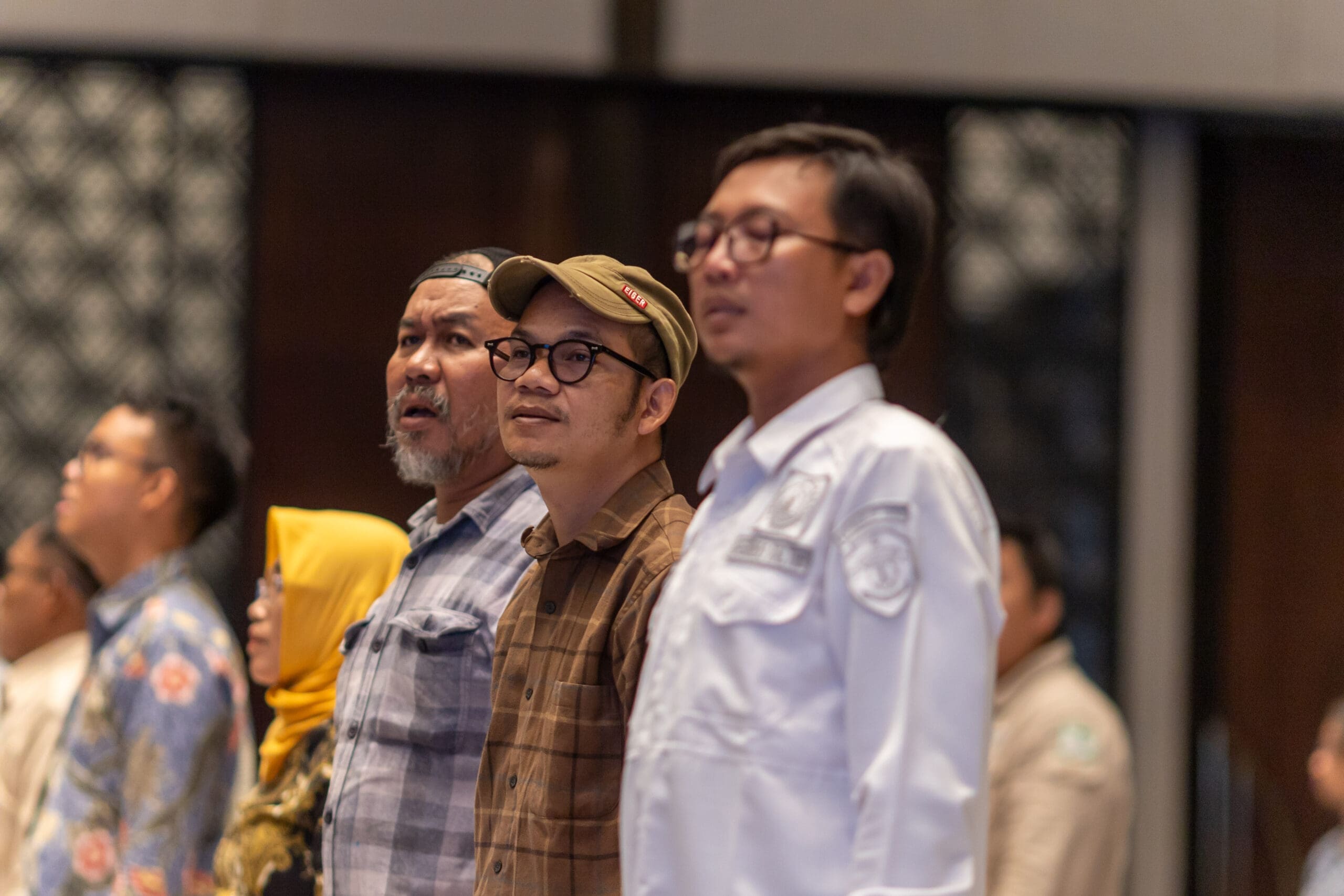
Although IKI JET’s focus on ensuring employment for coal workers is not directly linked to Indigenous groups, who are rarely employed in the fossil fuel sector, AMAN’s participation in this forum will ensure that Indigenous communities are protected in a renewables-led future. It’s worth mentioning that this involvement did not come about without internal struggles, however. At first, not all AMAN members were convinced of the forum’s inclusivity. Krisantus Lung Ngo, also from AMAN, who occasionally substitutes Saiduani at training events held by IKI JET, was initially pessimistic about the forum’s ability to include Indigenous viewpoints. However, after some productive forum discussions in which he felt his opinion was heard, he became more optimistic about the process.
In a push to promote innovation and creative problem-solving, the forum also included stakeholders specialising in the field of climate change. “This issue is interesting because energy is a basic need, the backbone of the wellbeing of a community,” said Yosi Ardiles from the Regional Council for Climate Change (DDPI). “There is a possibility that the affected groups do not receive the benefits they are actually entitled to, so we want to ensure that this issue can be inclusive.”
As an assistant for DDPI’s Climate Adaptation Working Group, Yosi has expanded his knowledge of climate change through the intersection between his DDPI work and the forum. He now sees economic transformation for a just energy transition as a form of climate adaptation. He felt that the training topics were eye-opening, especially around employment issues (such as decent work and green jobs) during the transition, as reskilling for fossil fuel workers is rarely something he works on in his role at the council. Instead, the conversation tends to centre on export revenues and energy generation whenever a future beyond coal mining is discussed, overlooking the people who prop up and rely on the industry.
“But it is actually important to talk about the people, the ones who will be affected by this transition,” Yosi said. He was therefore pleased that the Manpower Department is involved in the forum, as he sees its role as crucial for retraining coal communities and equipping them with new skills. In fact, this reskilling is “key to aligning energy planning at the high level with adaptation measures at the grassroots level,” he added.
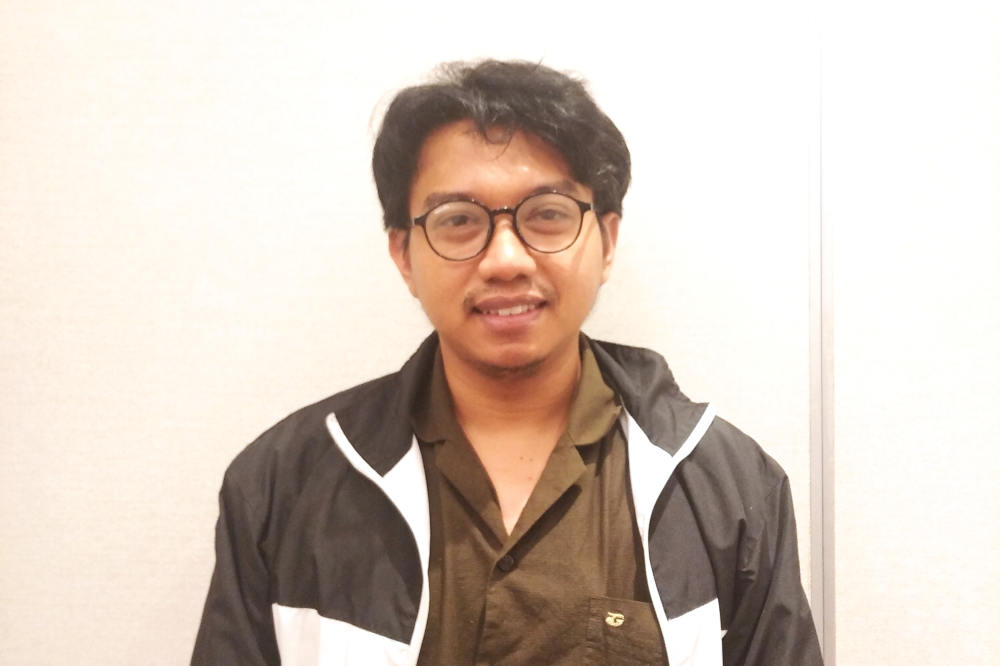
Getting the Coal Industry on Board
The ILO and its partners were willingly able to engage governments and coal workers alike, representing two of the tripartite partners; but involving coal company representatives proved challenging despite multiple efforts. Coal companies are not part of the employer association APINDO, which joined the forum from the earliest meetings, but have their own associations. Their presence is crucial, however, when it comes to understanding the industry’s perspectives and developing holistic and effective recommendations for just transition strategies.
Eventually, after the idea of the forum was introduced by the ILO at an industry event, the calls for involvement were answered. In July 2024, the East Kalimantan Mine Engineering Head Forum, an association for leaders in mining engineering, the vast majority of whom are from coal-mining companies, agreed to participate. Zulfa Habibinur, a member of the engineering forum and the head of mine engineering at the coal company Ghani Raya Mandiri, was selected as their representative.
From the first forum meeting he attended, Zulfa was on board with the vision to transition to clean energy and transform the economy in a way that ensures a just energy transition. However, he felt that these ideas had been around for some time already without gaining traction. This, he said, was because even though those working in the coal industry are more likely to understand the need for cleaner energy and a diversified economy, casual discussions aren’t based on comprehensive blueprints and tangible plans. For this reason, he argued that governments, at the national and provincial level, need to take the lead. To garner support from profit-oriented businesses, the government can formulate regulations that incentivise the green economy transformation; for example, by introducing subsidies or tax cuts for sustainable post-mining programmes that help laid-off coal workers. “Without enabling policies, these talks will be pointless,” Zulfa concluded.
Despite working in the coal industry, Zulfa believes the future lies in renewable energy and is willing to volunteer his free time to contribute to the intensive and ongoing activities for the just transition forum. “We need to be open-minded. This is for our future generations,” he stressed.
A More Cautious Approach
Excitement over the forum’s possibilities slowly evolved into deeper discussions about the potentially limiting technicalities of implementation. During earlier conversations in March and April, participants had considered various roles that the forum could take to promote just energy transition on the ground, including the ideas proposed by Dewi Wulan Sari, such as community-level awareness programmes. With more discussions came more technical considerations, including limitations related to their resources, such as expertise, time and commitment. In a June meeting, for instance, participants agreed to commission external experts rather than provide technical assistance themselves as many had previously imagined.
While these internal processes were largely constructive, there were concerns about the failure to secure external buy-in on policy recommendations and successful implementation. Krisantus, for example, who had engaged with local governments in many multistakeholder forums that provide policy recommendations, was well aware that there are often gaps in implementation even if recommendations are incorporated into policy.
Throughout the process, participants had considered different formats for the forum, including establishing a stand-alone forum or joining an existing one, both of which would bring advantages and drawbacks. While a brand-new independent forum would offer more freedom in defining and expanding the forum’s role, the potential challenge was a lengthy and uncertain legal process, which would have risked hindering the overall progress (the IKI JET project is slated to end in 2026). Establishing a joint entity with the Regional Energy Forum, on the other hand, was considered to be a great alternative that offered a faster set-up process. The perceived downsides to joining an existing forum with its own regulations, however, were the potential limitation of the forum’s role and the creation of overlapping recommendations.
Legal Recognition at Last
To ensure its long-term operation and lasting impact, the consultation forum needed legal recognition from the government. Its official establishment was first projected for June 2024, but national and local elections delayed the approval process. After months of discussion with the provincial government, the forum was established as an independent entity, with a slight shift in focus to economic transformation (instead of just energy transition) to align more closely with the province’s priority agenda. As a consequence, the forum was officially named the Regional Consultation Forum to Accelerate Economic Transformation of East Kalimantan.
The forum was officially endorsed by the local government through the issuance of Governor Decree Number 100.3.3.1/K.421/2024. This enshrined the forum as an independent entity, with Bappeda of East Kalimantan leading its implementation and coordination to (a) enhance the roles of government and other relevant stakeholders in developing a comprehensive plan for economic transformation, and (b) monitor and evaluate its implementation.
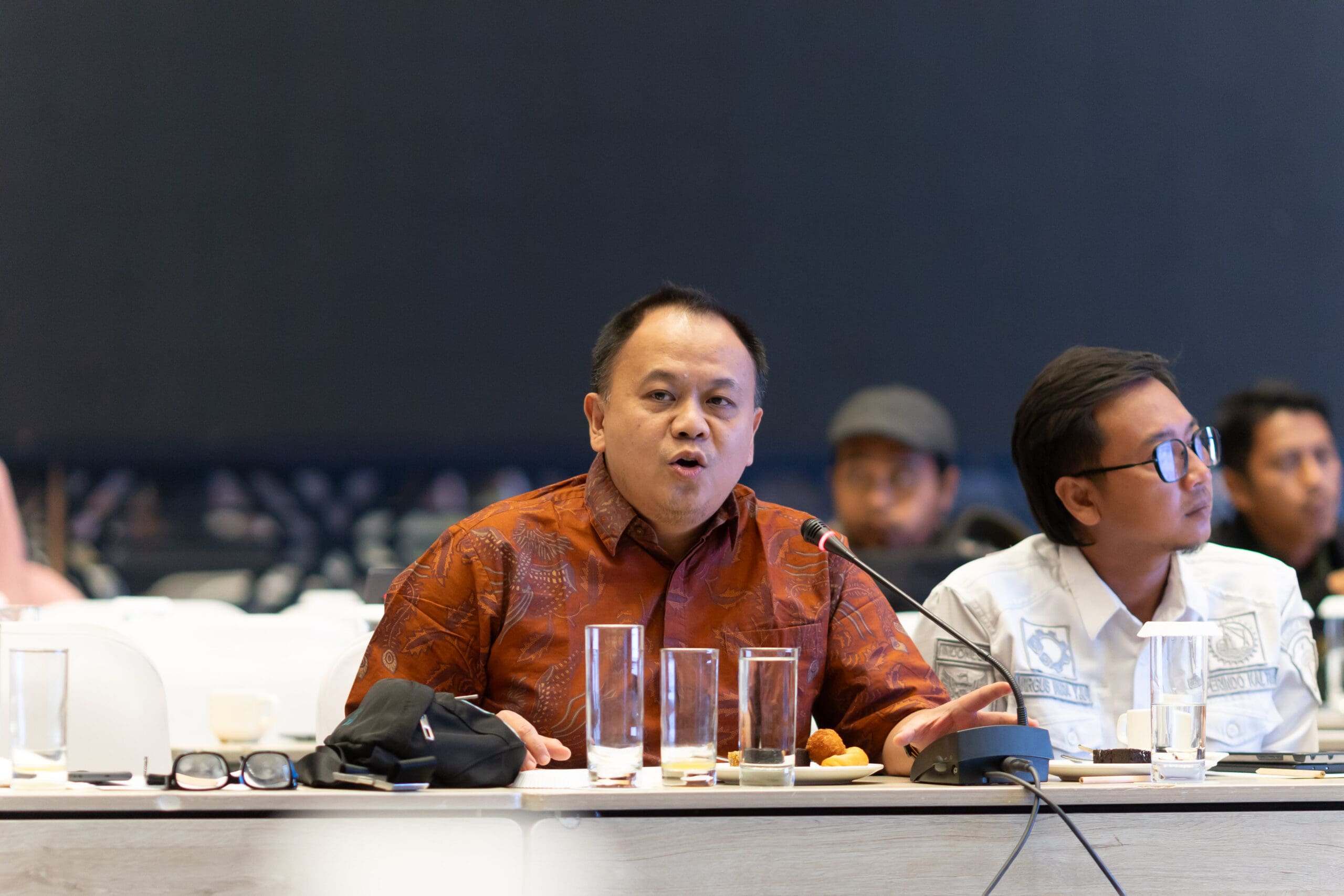
Conclusion: Final outcomes and a new focus
While the forum’s format has evolved from the IKI JET project’s initial model, adapting to new circumstances and an expanded membership, it continues to incorporate the project’s original focus on a just energy transition for coal workers and local communities, such as reskilling and the promotion of workers’ rights. The scope has also broadened to encompass the wider theme of economic transformation, reflecting the interconnectedness of energy transition and overall economic development, particularly in East Kalimantan.
To ensure a strong foundation for the sustainable and successful operation of the forum, the IKI JET team envisioned transferring leadership of the forum to a local organisation. In the end, Bappeda took up this role, leading the focus of the forum to shift from a just energy transition to addressing the region’s broader economic transformation. For East Kalimantan, this is not a new topic. As a region that is so dependent on natural resources like coal and timber, economic transformation has been advocated for decades without ever truly taking off.
This shift also allows the forum to better align with the province’s priorities and presents an opportunity to push for equality as part of the broader goal of transforming the economy to overcome the challenges posed by the energy transition. This alignment with existing provincial goals will ensure the work addresses the region’s most pressing problems. It also means that the forum will play a larger role in transforming the economy than had initially been conceptualised, and many more stakeholders will be involved. As well as non-government stakeholders such as trade unions, womens’ groups and CSOs, the forum will now include the Organization for Regional Apparatus of East Kalimantan—encompassing the entire regional government—with each relevant entity contributing their expertise in developing the roadmap for an economic transition. Meanwhile, the private sector will be involved through the representatives of various business and sector associations; among the most notable are the East Kalimantan branch of the Indonesian Chamber of Commerce and Industry (Kadin) and associations of primary commodities like coal, oil palm, and agricultural products.
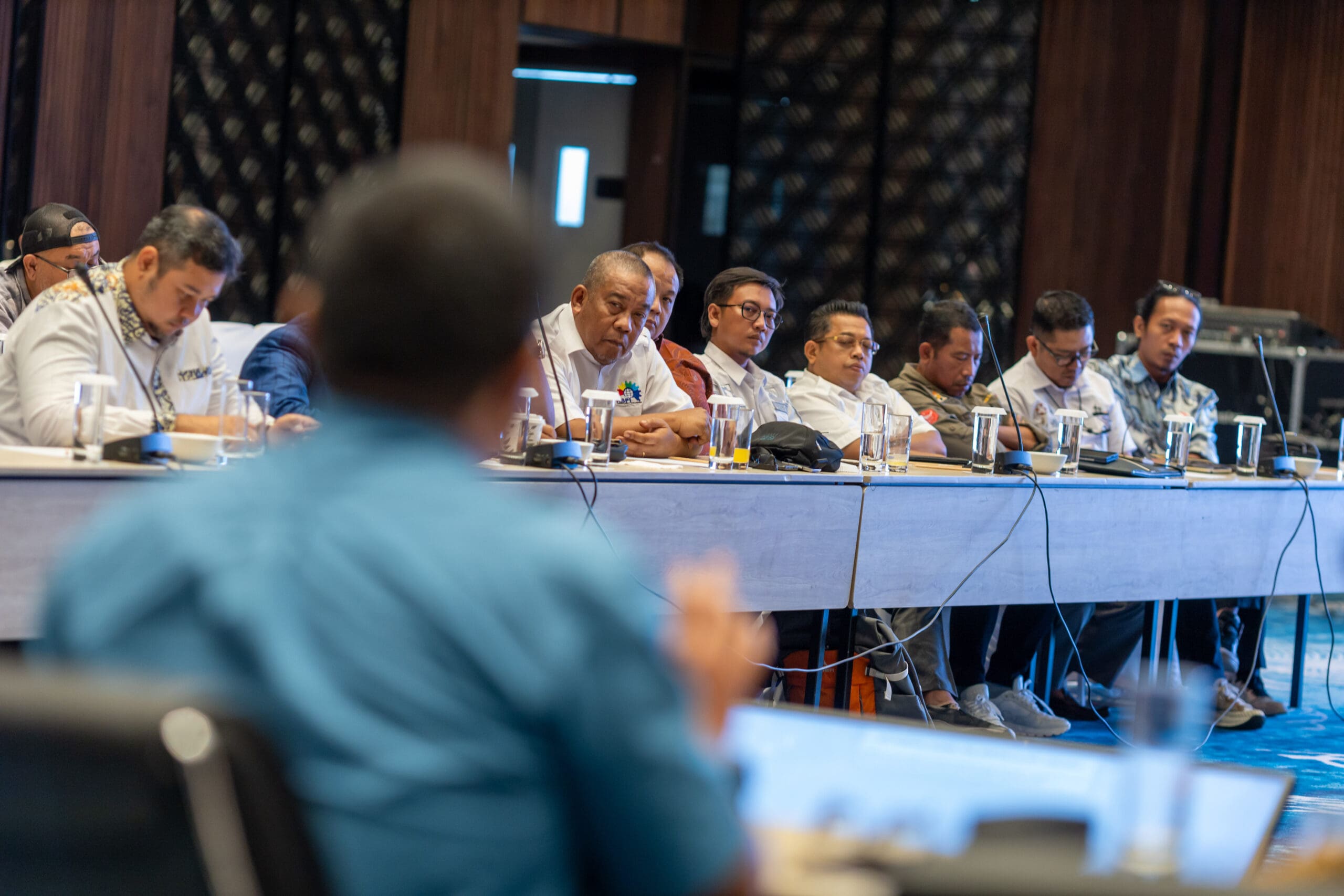
The initial forum members remain active participants in the now formalised forum, addressing a range of crucial issues related to East Kalimantan’s economic transformation, including a just transition. Additional stakeholders are also welcome to participate in the forum to share their perspectives and inputs for the plans, policies, and implementation.
Overall, the original forum members seem largely happy with the approach taken, noting that Bappeda’s leadership will help to ensure that the forum outlasts the IKI JET project. Saiduani Nyuk from the Indigenous group AMAN applauded the expanded membership, citing that it demonstrates commitment from both the government and the private sector to make meaningful efforts to prepare for the energy transition. However, he also expressed concern that the wider membership could lead to an imbalance of power in the forum dynamics. “We are not sure whether the CSOs who represent marginalised communities will have their voices heard in this forum now,” he said. He stressed his hope that the forum will prioritise the voices of often overlooked groups, referring to the initial forum “where each voice was heard equally” as a positive experience.
Muhammad Arifin of the trade union KSBSI, on the other hand, was won over by the shift in focus and the expansion of the forum. “The economy will be impacted by the energy transition, so the focus on economic transformation is in line with our first priority,” he said. While he also believes that the addition of new members could affect the forum dynamics, he is optimistic that this can be managed: “We will find a way to bridge the differences, as long as we share the same vision.”
With the forum now established, time will tell how effective it can be in supporting an equitable future beyond coal in East Kalimantan.
Find out more about South Sumatra’s new regional consultation forum which launched in April 2025.
Stay Informed and Engaged
Subscribe to the Just Energy Transition in Coal Regions Knowledge Hub Newsletter
Receive updates on just energy transition news, insights, knowledge, and events directly in your inbox.

